Our year-end coverage continues with a look at the best performances of 2022. Rather than divide categories into supporting or lead or by gender, we’ve written about our 35 favorites, period. (Well: a few more, if you add some groupings we couldn’t leave out.) Find our countdown below and start watching the ones you’ve missed here.
35. The Ensemble of Funny Pages
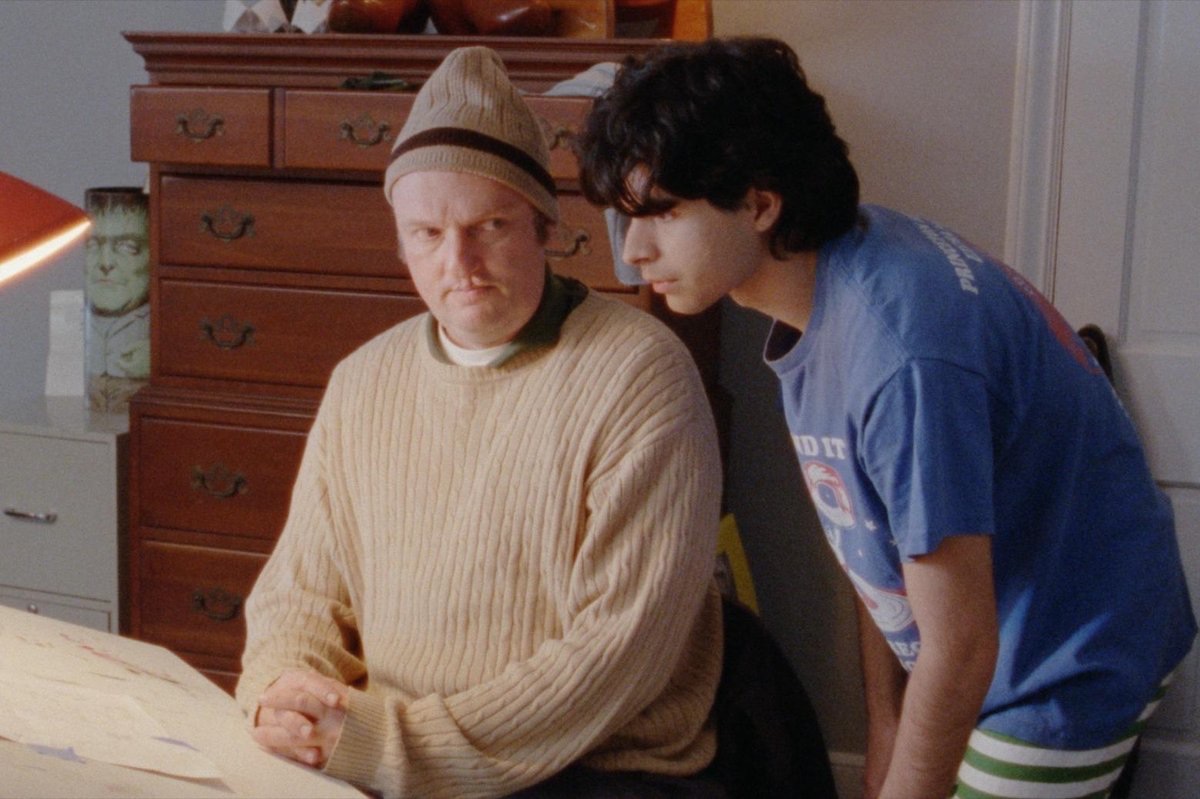
Owen Kline’s Funny Pages may be the sweatiest, stinkiest, most stress-inducing film you’ll ever watch, and you’ll be happy about it. Daniel Zolghadri (believably manipulative) plays a pushy, privileged teen who dreams of being a cartoonist, but the weirdo script buzzes largely thanks to an offbeat supporting cast. Standouts include Stephen Adly Guirgis as a larger-than-life art teacher, Miles Emanuel as a geeky deadpan BFF, Marcia Debonis as a cheeky public defender, and Michael Townsend Wright and Cleveland Thomas Jr. as the illegal basement apartment roommates from hell. But Matthew Maher, playing an unstable former comic book colorist our protagonist tries coercing into mentorship, is the crown jewel creep of them all, his jittery vulnerability like an R. Crumb sketch unwillingly cursed into life. – Robyn B.
34. Ana de Armas (Blonde)

Having to ground a film in human emotion that drags one deep into metaphorical, dream-like sequences where the thread to humanity dwindles, Ana de Armas shows us that she is capable of anything as a performer in Blonde. Tasked with handling the expansive, mythic text of a Hollywood icon like Marilyn Monroe, the actor lays bare all emotion and vanity. Stuck in emotional ruts where love seems to vanish under the guise of a crippling psychosis and abusive relationships tied with a debilitating drug problem, de Armas navigates the puzzle pieces of a fractured narrative, emotionally unstable sequences, and sweeping epic about the death of a movie star. In a Mulholland Dr.-like scene where Monroe auditions for a role, the performance enters a realm of surprising realism and one that defies expectations––a showcase for the actor in a movie designed to hurt you. – Erik N.
33. Achouackh Abakar Souleymane (Lingui, the Sacred Bonds)

Although virtually unknown in the US, Chadian actress Achouackh Abakar Souleymane delivers a masterful performance in Lingui (The Sacred Bonds), Mahamat Saleh Haroun’s domestic drama. Abaka Souleymane plays Amina, a single mother who is already considered an outcast in her family and in her village on the outskirts of Chad’s capital N’Djamena. A reluctant feminist rebel, she faces a crossroads trying to save her traumatized daughter Maria (Rihane Khalil), who has recently become pregnant, while also navigating a relationship with her sister who calls upon her for help in an emotionally devastating scene. In this captivating work of social realism, Akaka Souleymane captures a woman who is both street-smart and compassionate, navigating a formal and informal economy as she attempts to raise one million CFA (just over $1,600 USD) for an illegal abortion. An observant domestic drama with a powerful message (channeling pioneering African filmmaker Ousmane Sembene), Saleh Haroun’s Lingui tells us so much about Amina while revealing so little. Each scene opens a new secret or discovery, each as devastating as the next without veering into the melodramatic—largely in part due to Abaka Souleymane’s beautifully restrained, nuanced performance. – John F.
32. Kristen Stewart (Crimes of the Future)

In a film packed wall-to-wall with classically Cronenbergian oddballs, Kristen Stewart’s Timlin (where’s the list for best character names of 2022?) is perhaps the most eccentric: a mousy, twitchy, stammering pencil-pusher so intensely aroused by the thought of surgery that it’s a wonder all the capillaries in her eyes don’t burst. Crimes of the Future sees Stewart folding all of her signature tics––for some a distraction; for others a virtue––into a single character and exaggerating them nearly to the point of self-parody. Of course she’s in on the joke, and her ability to ground these idiosyncrasies in genuine vulnerability and desire is indicative of her immense talent. – Cole K.
31. Anamaria Vartolomei (Happening)
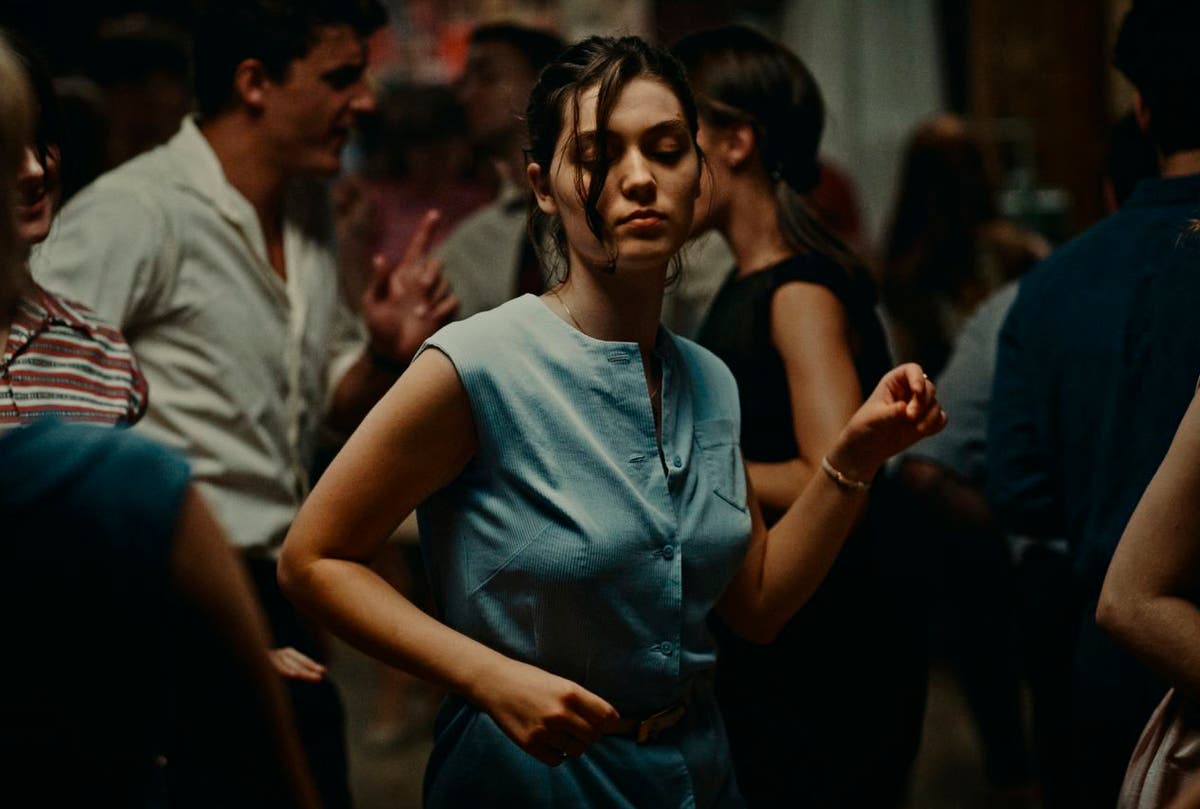
In Audrey Diwan’s Happening, a young French girl becomes pregnant in the early 1960s. The film rides on the shoulders of Anamaria Vartolomei, a bright-eyed presence, in this quiet, physical role. She’s forced to portray an isolation, an internalization of her emotions, opting for practicality rather than rashness. Her personal space is constantly being intruded upon, the camera’s closeness becoming ever-present. Vartolomei doesn’t react, though. She’s an anchor, a pained actor who commands attention without needing to raise her voice. – Michael F.
30. Emily Skeggs and Kyle Gallner (Dinner in America)

Adam Rehmeier’s Dinner in America has a definitive sense of punk. Actors Emily Skeggs and Kyle Gallner are tasked with giving this anarchic sensibility to the picture, in essentially a two-hander about two misfits who have a shared sense of saying “fuck you” to anyone who gets in their way. It’s a love story, a punk ballad for Skeggs and Gallner to act out. They have an immense amount of chemistry, looking at each other like it’s the first time either have heard such a beautiful voice come from another person. As Skeggs sings her first punk song, a true bop that’s worth hearing, Gallner watches in absolute awe. Skeggs and Gallner feel like independent discoveries, though the latter has seen an uptick in recent horror roles. They imbue punk onto the screen without force. They channel characters’ shared anger into a sweet love story, an unlikely companionship born out of sticking it to the man. – Michael F.
29. Anaïs Demoustier (Anaïs in Love)
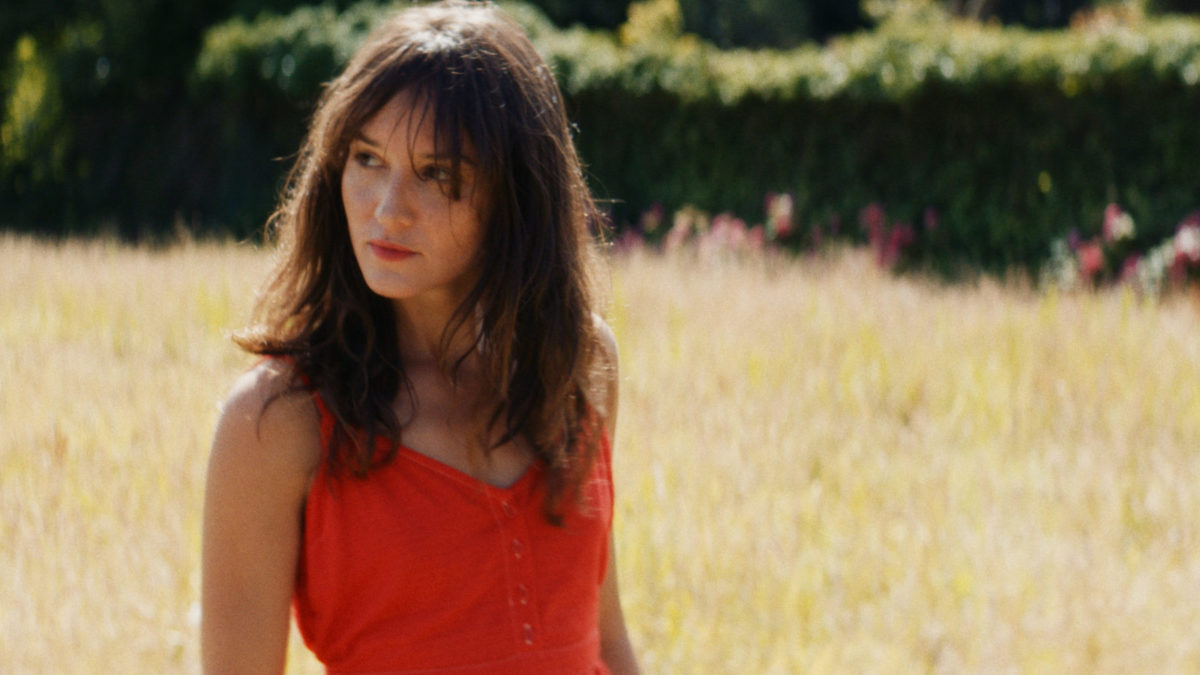
As the indecisive 30-year-old heroine of Charline Bourgeois-Tacquet’s semi-autobiographical romantic comedy, Demoustier pulls off the rare feat of being a lead you simply can’t take your eyes off while being generous enough to allow her costars to shine in their own right. Demoustier’s expressive eyes turn into portals of awe when she looks at one of her lovers, Emilie (Valeria Bruni Tedeschi), while her entire body seems to transform into putty in scenes she shares with Denis Podalydès’ Daniel, a lover who brings out her more carnal desires. Demoustier is no newbie, having starred in over 50 films, but watching Anaïs in Love, you’d think you’d never seen a fresher performance. – Jose S.
28. Gabriel LaBelle (The Fabelmans)
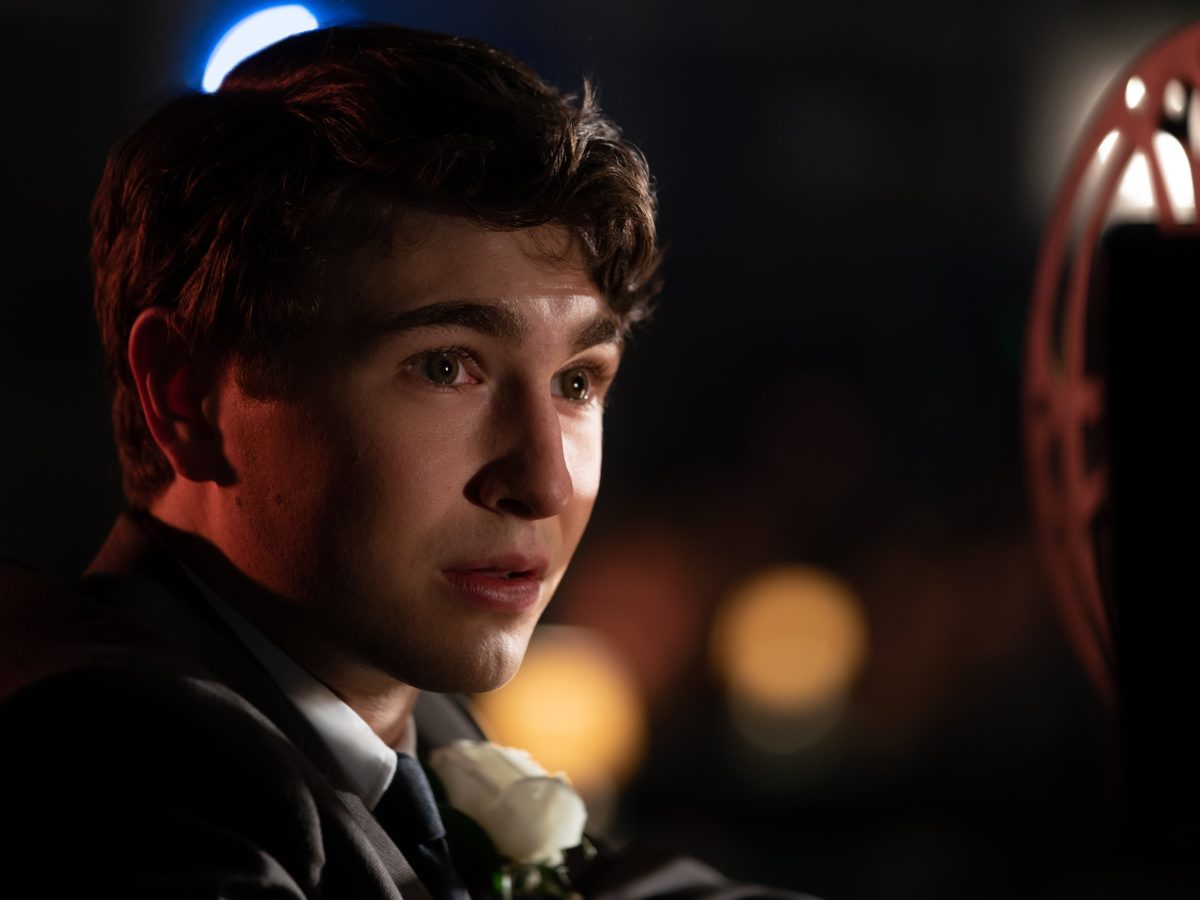
He doesn’t look like Spielberg. Not at first. So you might spend half his screentime—during which a wonderfully orchestrated, deceptively obvious drama proceeds around him—seeking the similarities. But whatever forces, alchemical or manufactured, transformed him more and more into a spitting image would mean little without Gabriel LaBelle’s preternatural grasp of this material’s odd, complicated emotional shifts. And if, at movie’s end, he finally resembles a young Spielberg so much it suggests optical illusion, I’ve done more to remember how LaBelle registered a father’s hurt than David Lynch as John Ford. Seemingly impossible, and yet. – Nick N.
27. Jennifer Lawrence and Brian Tyree Henry (Causeway)
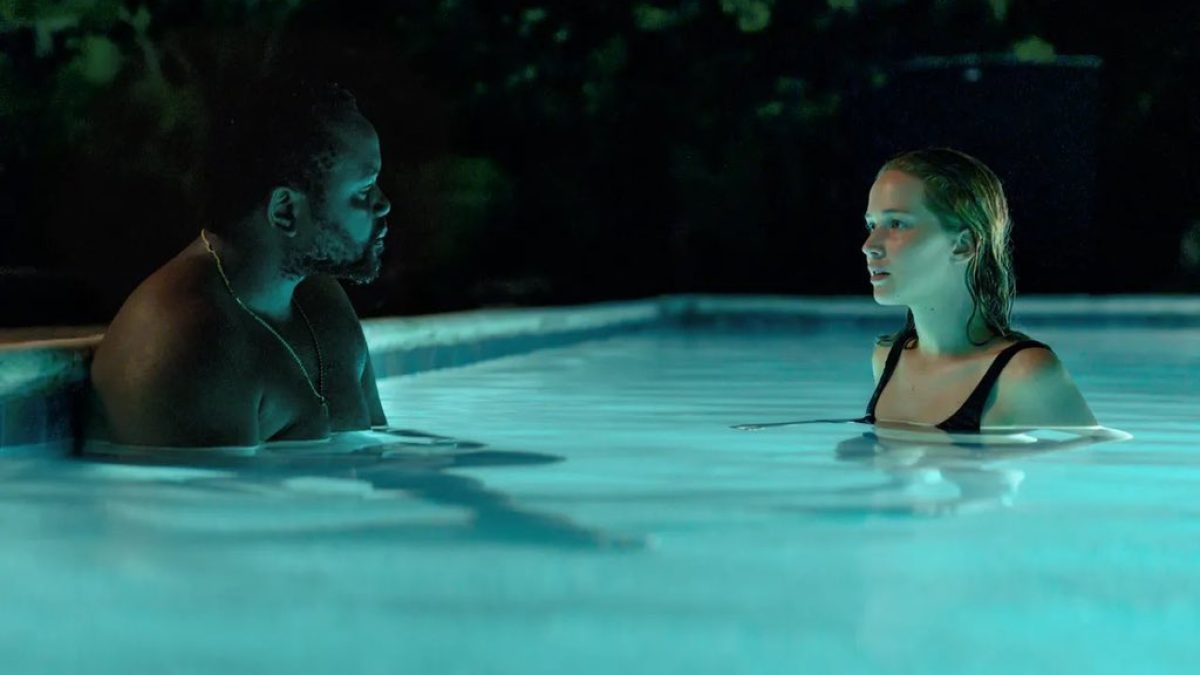
When we first meet Lynsey (Lawrence), an American soldier sent back home from Afghanistan from a brain injury, we meet someone who’s lost their sense of purpose. Lawrence, whose movie star magnetism often makes us forget she has always been a master at developing the interiority of her characters, turns Lynsey into the ghost of a person, who remembers her physicality when she meets James (Tyree Henry), a kind mechanic whose own sense of self has been taken away by trauma. Although their characters don’t connect romantically, watching the actors complement each other beautifully conveys the most human kind of longing: our need to be seen, really seen, exactly for who we are. – Jose S.
26. Diamond Stingily (The African Desperate)

After pouring years of your life into forming your artistic voice in the coddled safety net of school, where do you go next? Martine Syms’ The African Desperate doesn’t answer that question, but it does eloquently and electrifyingly capture that very specific crossroads, and much of its success can be attributed to the lead performance by Diamond Stingily. Playing MFA grad Palace Bryant, she navigates saying goodbye to some genuine friends and some not-so-genuine annoying teachers and colleagues while contemplating what is next. Drawing on her own experience as an artist, there’s a cool, comfortable familiarity in Stingily’s performance that will resonate with anyone who has endured travails of academia. – Jordan R.
25. Austin Butler (Elvis)
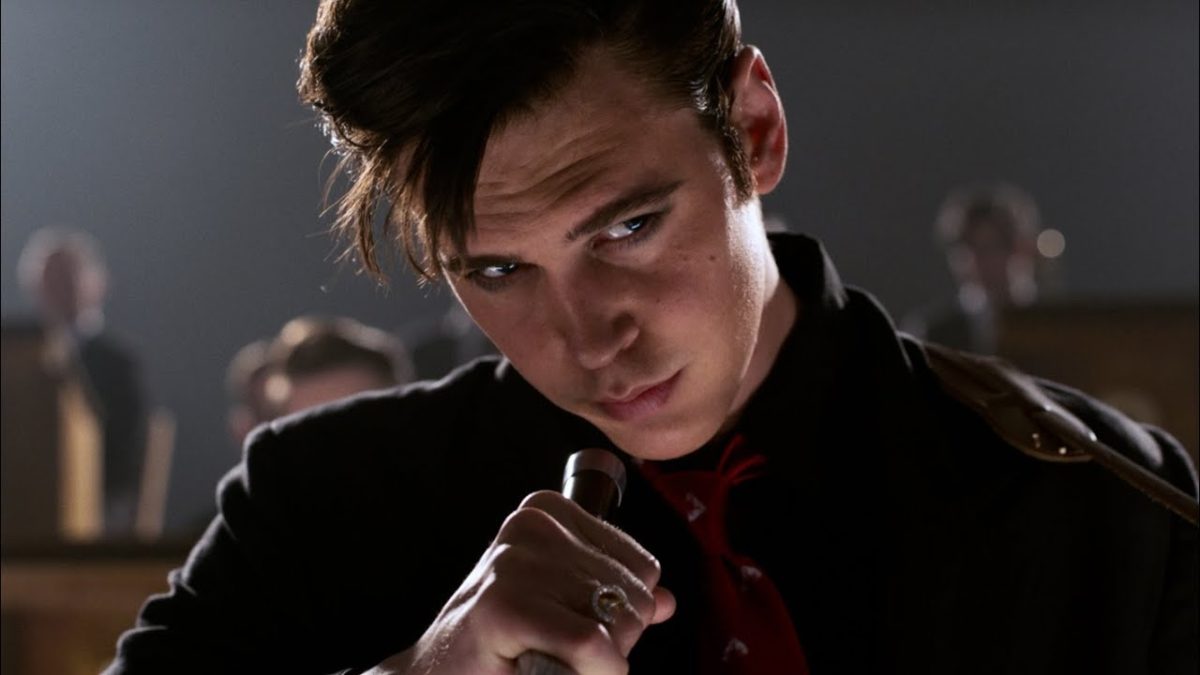
Austin Butler’s star-making turn in Elvis is undeniable. Mileage has varied on Baz Luhrmann’s biopic, but the actor’s portrayal of Presley remains a joy to watch. He’s fully embodied the King of Rock and Roll—so much so that he seems to still be in character months later. Butler is magnetic, the swivel of his hips mirroring that which audiences have remembered and rewatched for decades. It’s the type of performance that vaults an actor: not just increasing their stock, but catapulting them into a stratosphere reserved for A-listers and box-office stars. For a moment, even for only a split second, one forgets this is an actor playing Elvis. He contains bottled-up magic that explodes onto the screen. He’s the best thing about a good movie, and in awards and opportunities he’ll be rewarded. – Michael F.
24. Michelle Yeoh and Ke Huy Quan (Everything Everywhere All at Once)
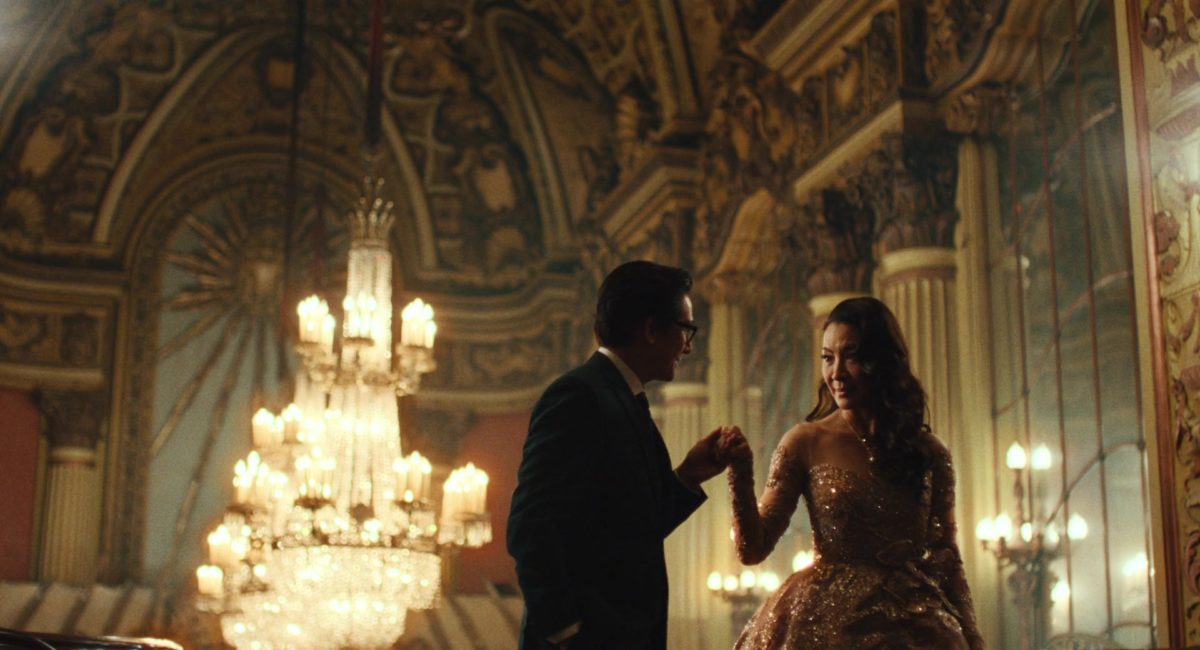
Michelle Yeoh and Ke Huy Quan give such earnest, mesmerizing performances in one of the best films of the year that it is almost striking to realize Yeoh has rarely been allowed to convey these raw emotions except on rare occasions, often being sidelined by her male co-star in her many films throughout the decades, while Ke Huy Quan only returned to acting after a 20-year absence and never lost any of his acting talents. Balancing moments of genuine heartbreak and rip-roaring action, it’s a laudable opportunity the Daniels have offered to team these two stars together in what may be career peaks. – Margaret R.
23. Rebecca Hall (Resurrection)
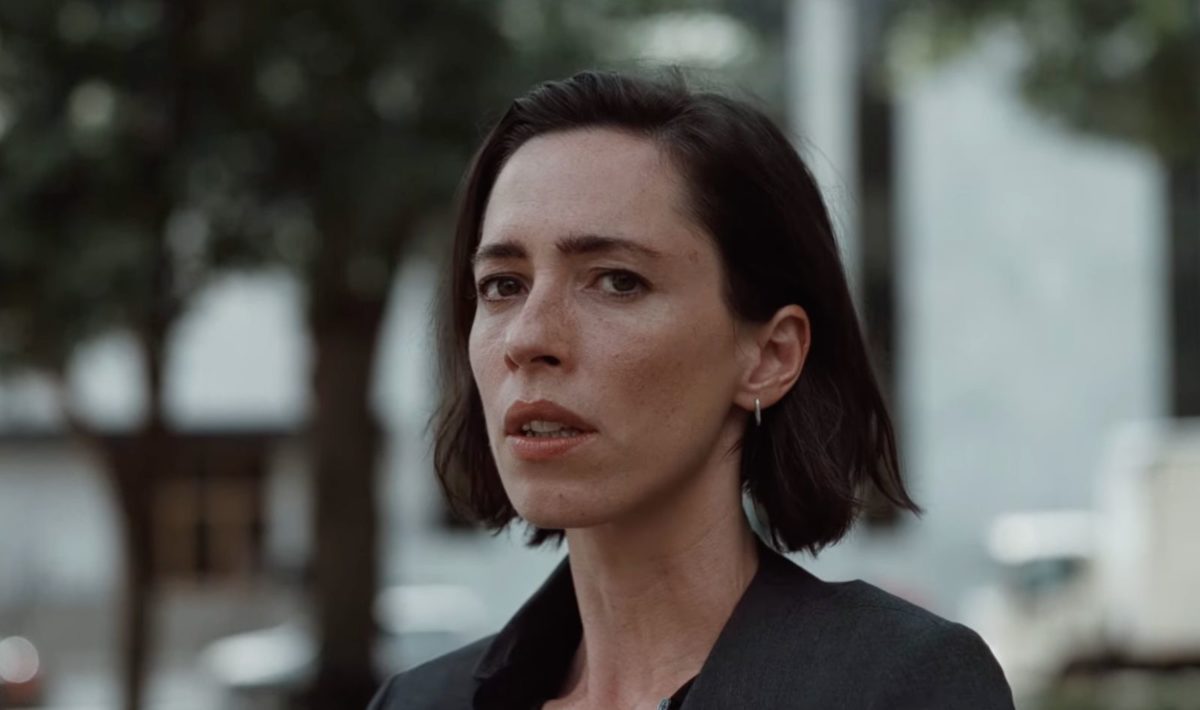
A quietly unsettling, riveting psychological thriller that enters realms unknown and ambiguous to keep the audience on edge in what feels like an otherworldly form of terror, Rebecca Hall stands in the center, gripping the frame with all of her acting might. Her Margaret is subdued and repressed from a strained relationship with the abusive David (a menacing Tim Roth) who comes back after a 22-year absence, and she begins to unravel. Played with an impassioned confidence and acutely attuned paranoid sensibility that her world might shatter, Hall is incredible at embodying an absorbed control freak. As she battles the will of David she makes the viewer question what’s real and what’s not. Hall is utterly convincingly in both enduring the throes of lingering trauma and forming a defiant resilience – Erik N.
22. Tom Cruise (Top Gun: Maverick)

Taking the reins of saving the cinematic experience and thrusting onto his shoulders a savior complex is the id, ego, and magic of a superstar like Tom Cruise. An actor so dedicated to the experience of being in the theater he continues to push his body with death-defying stunts and promises to take us to space. But above all the challenges of topping a film that came out 36 years ago, Cruise effortlessly delivers. Channeling the nostalgia of “Danger Zone,” Cruise walks out with 2022 in his pocket. A visage that abandons all concepts of time, still fresh-faced and ambitious at the tender age of 60, Cruise bridges the gaps between generations, passing on his wisdom but also being the avatar for a film as one of the last true-to-blue superstars. Even surrounded by the likes of up-and-comers Miles Teller and Glenn Powell, it’s Cruise who stands above. Embodying his brash rebelliousness, and struggling with the grief of losing close friends, Top Gun: Maverick sees Cruise the best he’s been in years. – Erik N.
21. Zoë Kravitz (Kimi)
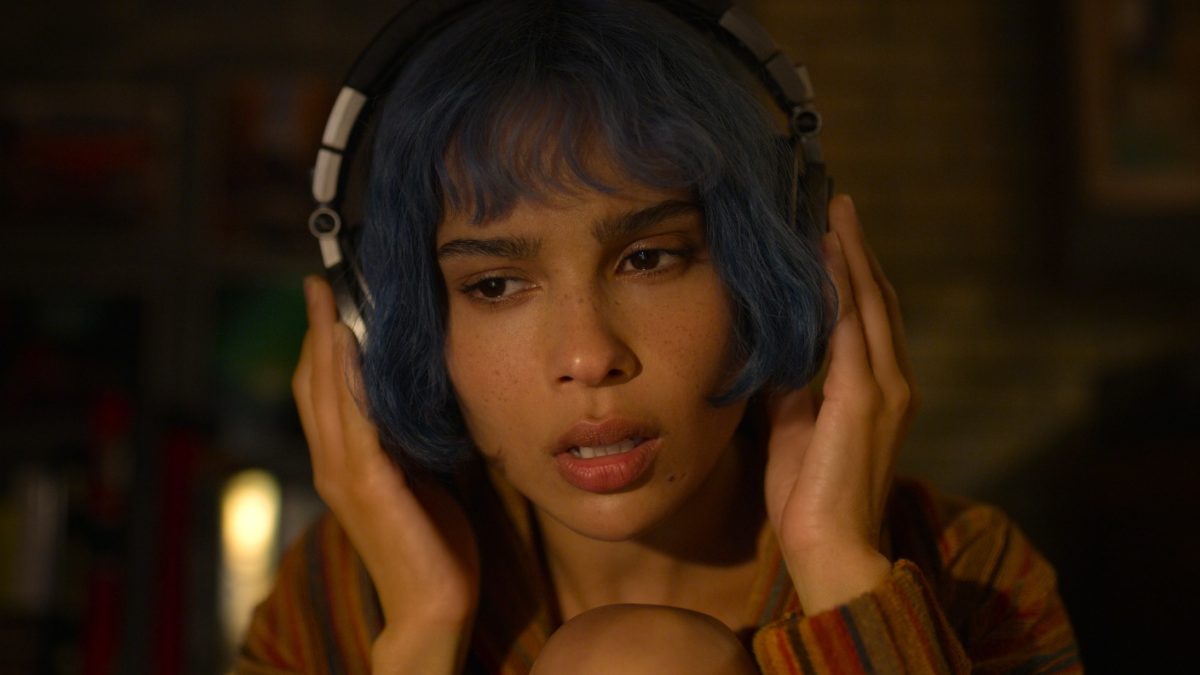
Kimi demonstrably benefits from how much Steven Soderbergh and David Koepp root us in the specific perspective of its main character, a big-tech worker trying to push through walls to unravel a conspiracy. They do a marvelous job bringing representation for an Autistic character who doesn’t meet the traditional tropes of onscreen portrayals for the disorder we’re accustomed to seeing. None of that would be possible, though, without the extraordinary work of Zoë Kravitz. Just like her director, she is modulating her performance with just the right amount of precision in each scene, never pushing too hard on any one aspect of the character and ensuring that she feels like a real, living human being in the midst of extraordinary (and extraordinarily terrifying) circumstances. – Mitchell B.
20. Vicky Krieps (Corsage and Hold Me Tight)
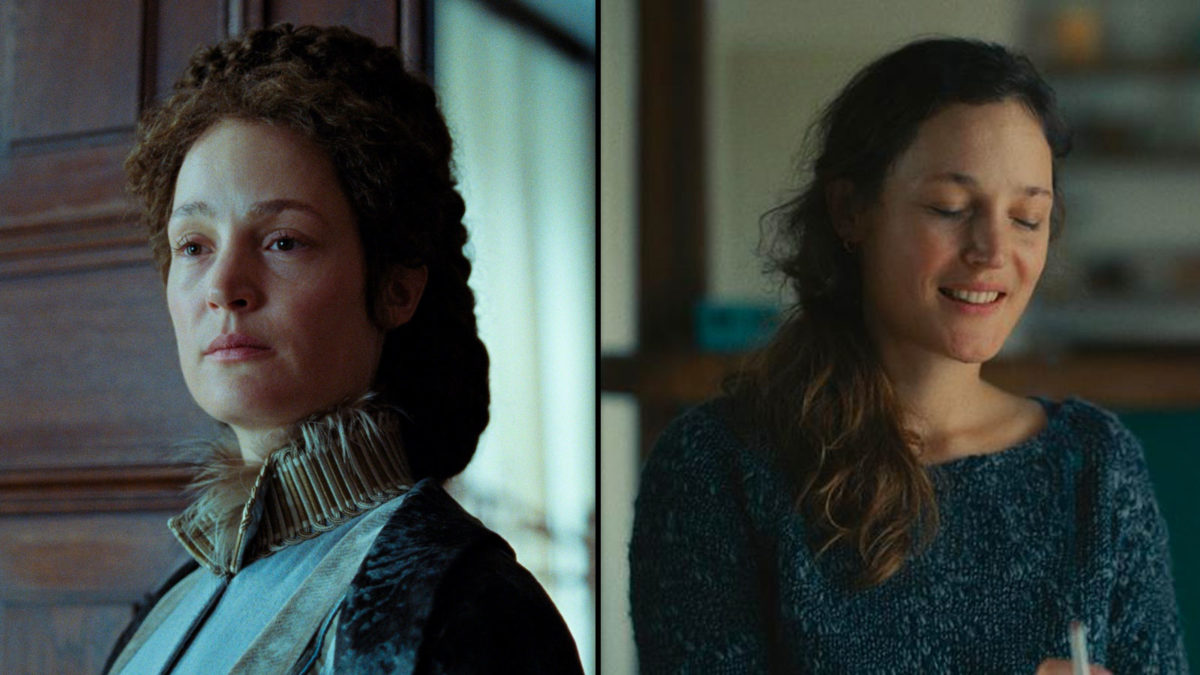
There are few actors working today with the emotional intuitiveness of Vicky Krieps. She broke out in a major way in 2017, holding her own against (and even eclipsing) Daniel Day-Lewis. In 2021, she notched some dynamic portrayals across films including Old and Bergman Island. This year saw her deliver a duo of inextricably linked, yet unmistakably distinct, performances. In Corsage, she captures with equal amounts of fury and restraint the suffocating figurative erasure of Empress Elisabeth of Austria, while Hold Me Tight (which I interviewed her for) sees her investigating how to navigate the world after a literal erasure of her family from her life. Both films are shouldered by Krieps, who worked in tandem with her directors to bring to full life these complex, largely interior women in ways that viewers can understand with something as simple as a subtle shift in her expression. – Mitchell B.
19. Keke Palmer (Nope)

The effervescent radiance of a charismatic performer like Keke Palmer finally had a space to shine and show her gifts in Jordan Peele’s visually decadent epic Nope. Even with a director as driven by spectacle as Peele, he’s crafted a role that embodied all of the actor’s gifts, charms, and talents, which for a time were confined to limited spaces or stuck in the kid’s world of Nickelodeon and Disney. As Emerald Haywood, Keke’s character of invention unravels the trauma deep in the text of Peele’s script of Hollywood misrepresentation. While considered by some to be a supporting turn, she becomes the film’s main attraction, bouncing off the quiet demeanor of her brother––a brilliant Daniel Kaluuya––as the two mend their talents together to battle an extraterrestrial force while keeping the film grounded in human emotion. – Erik N.
18. Dale Dickey (A Love Song)
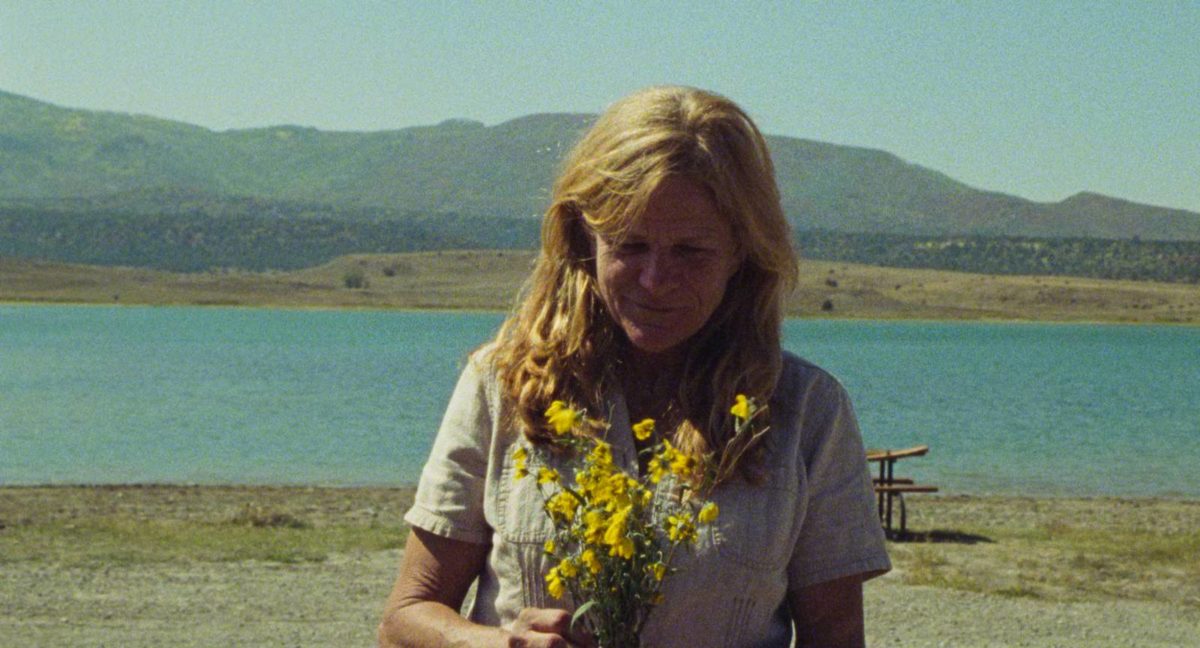
Dale Dickey’s face is worn in A Love Song, a story of grief, regret, and lost love. Director Max Walker-Silverman gives the actor her own vehicle, after decades of mostly supporting roles, and she eases into this role of a woman living on the road. She has years and years of loss written into the lines on her face with every little facial expression a moment remembered. It’s a soft-spoken performance, one with few lines and a level of acceptance. In his debut, Walker-Silverman knows that Dickey has the power to hold a shot, as likable and relatable as ever. – Michael F.
17. Franz Rogowski (Great Freedom)

Rogowski’s performance in Great Freedom registers especially strongly in context with his recent work. As Hans Hoffman, an ordinary German man continually imprisoned for his homosexuality in the country’s immediate post-war era, we identify with him through his virtue and resilience, a reprieve from the cautious remove of his more anti-heroic roles. In the film’s coda, where Hans ambivalently takes on the freedom he’s spent years yearning for, his wordless movements fuse sublimely with composer Peter Brötzmann’s mournful free blowing saxophone. – David K.
16. Jeremy Pope (The Inspection)
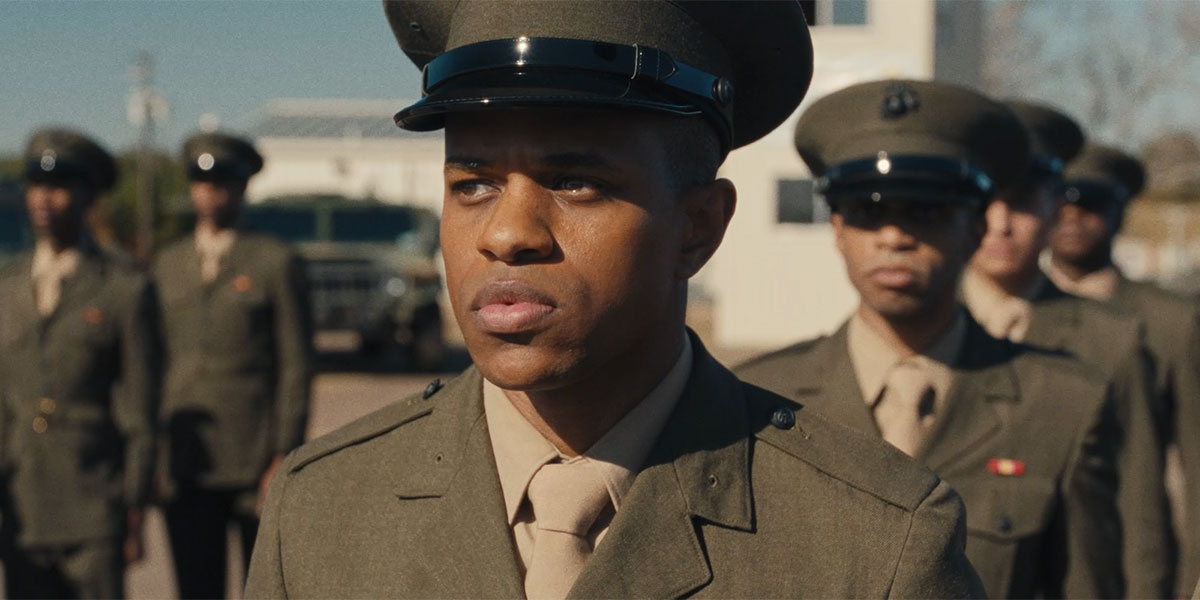
Elegance Bratton based The Inspection on his own experiences as a gay man joining the Marines, and when he needed to cast someone to play himself, he chose Broadway star Jeremy Pope. He’s broken, only to be broken further and further to the point of near-death. He puts together a performance that’s a mixture of anger and depression, rejected by everyone including his own mother. Pope’s heartbreaking as a stand-in for Bratton, having to display all of the contradictory, complex emotions of his director. And he revives a film that can often feel already plotted, telegraphed in its story beats,, elevating The Inspection into a story with an emotional punch, due to his willingness to push himself and his body to militaristic heights. – Michael F.
15. Colin Farrell (After Yang, Thirteen Lives, and The Banshees of Inisherin)
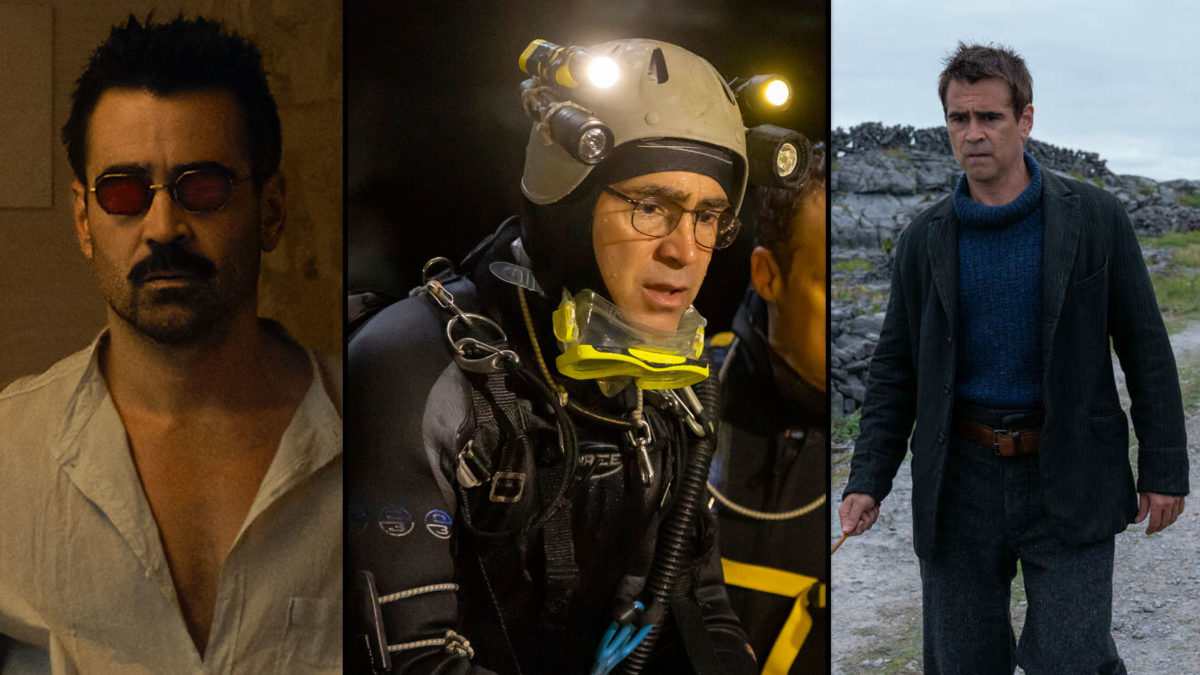
Collin Farrell is an actor of thoughtfulness, curiosity, and variance, having carved a filmography over the years of consideration for the theater-going experience with big blockbusters while carefully balancing roles where he can get weird in the independent scene. Farrell has done no different in what is proving to be a banner year. An actor who indulged in the fun of prosthetics with his hammy, Italian Chicago mob affectations as The Penguin in this earlier 2022 release, The Batman. But the majesty of Farrell’s choices can be seen between his trio of most subtle and profound turns: After Yang, Thirteen Lives, and Banshees of Inisherin. Delicately portraying the existential malaise of a futuristic society, the white-knuckle intensity of saving lives, and the simplicity of a time long ago, Farrell finds the warmth and despair of the human condition. – Erik N.
14. Anna Cobb (We’re All Going to the World’s Fair)
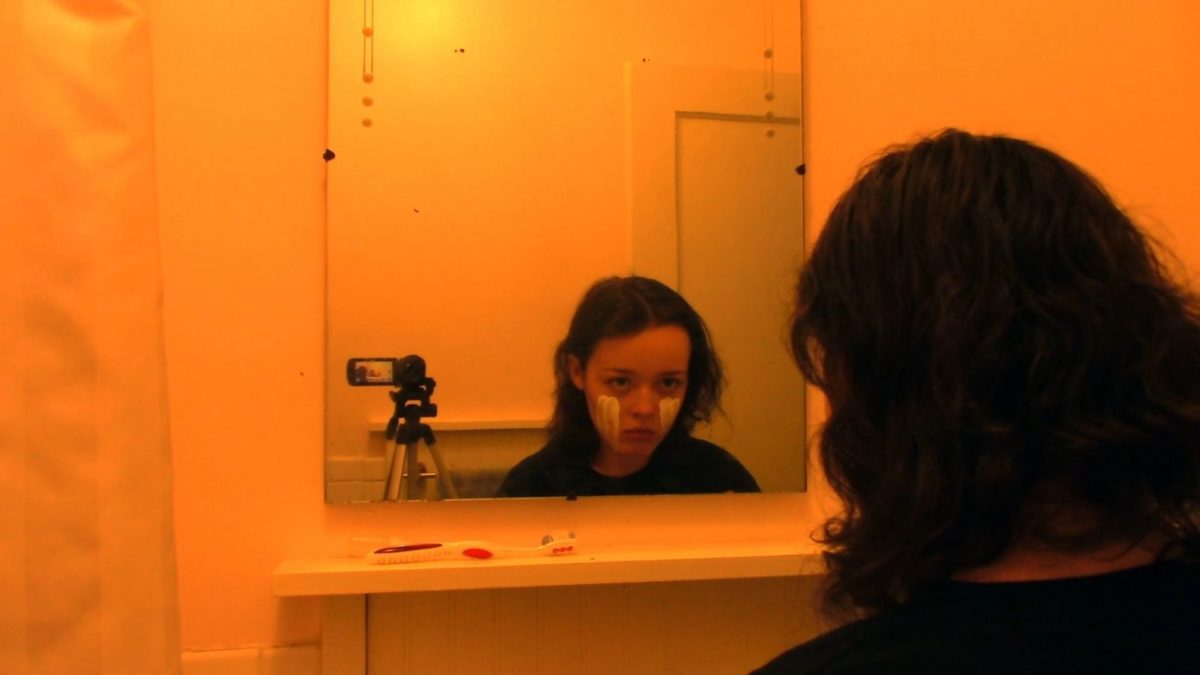
Devised and shot prior to the pandemic, yet premiered in the lockdown-depths of Sundance 2021, Anna Cobb’s breakthrough role in screenlife horror We’re All Going to the World’s Fair strongly reflected the fraught solitude of that moment. As the primary human presence in Jane Schoenbrun’s heavily conceptual debut film, Cobb’s wide-eyed presence evoked the eerie, addictive nature of online existence—a resonant flashback for those of us who grew up on the pre-social media 2000s Internet, where endless mystery, and potential connection, could lay behind a bolded hyperlink or message board avatar. – David K.
13. Guslagie Malanga (Saint Omer)
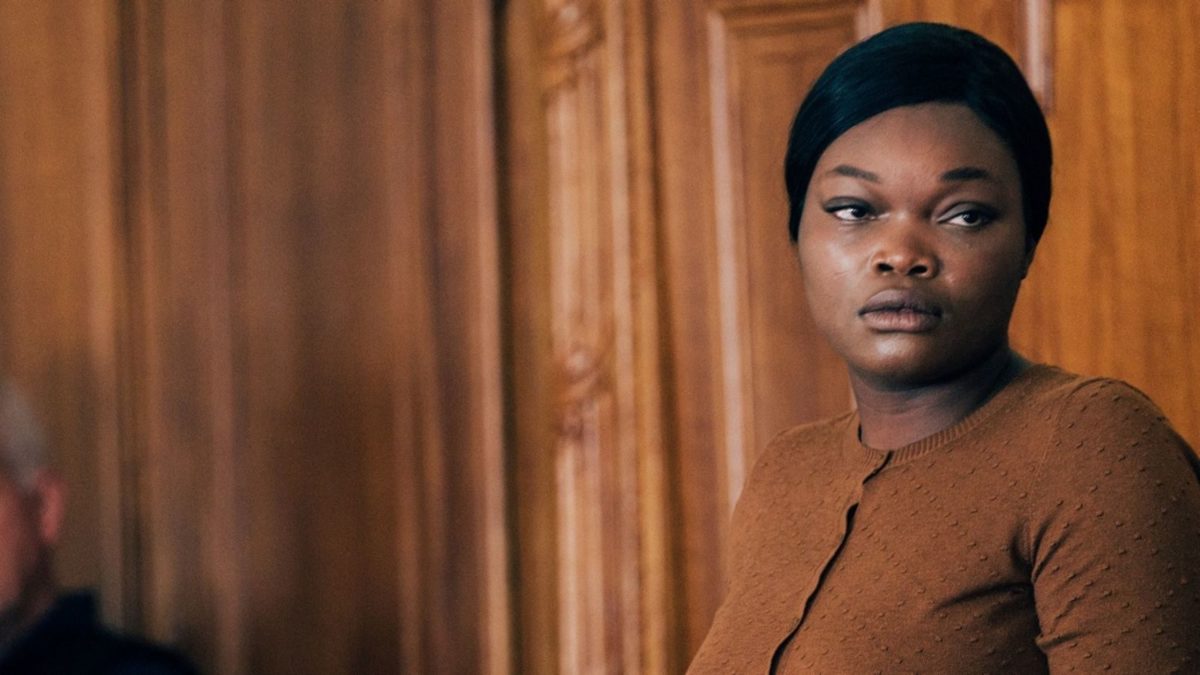
One of the worst markers of an irredeemable monster is a mother who would kill her own child. It’s a testament to Alice Diop’s script and—most pertinently—the transcendent acting of Guslagie Malanga. The actor plays Laurence Coly, a woman accused of such crimes and, remarkably, the audience sympathy is with her throughout her trial in Saint Omer. Malanga endows her performance with subtle dignity, portraying a former philosophy student reeling under the effects of generational trauma, the casual racism of modern Parisian society to Sengalese immigrants like her, and finding herself having to convey hidden oppression to a largely white courtroom. It’s a performance that posits the axiom that monsters are also undeniably human too. – Margaret R.
12. N. T. Rama Rao Jr. and Ram Charan (RRR)
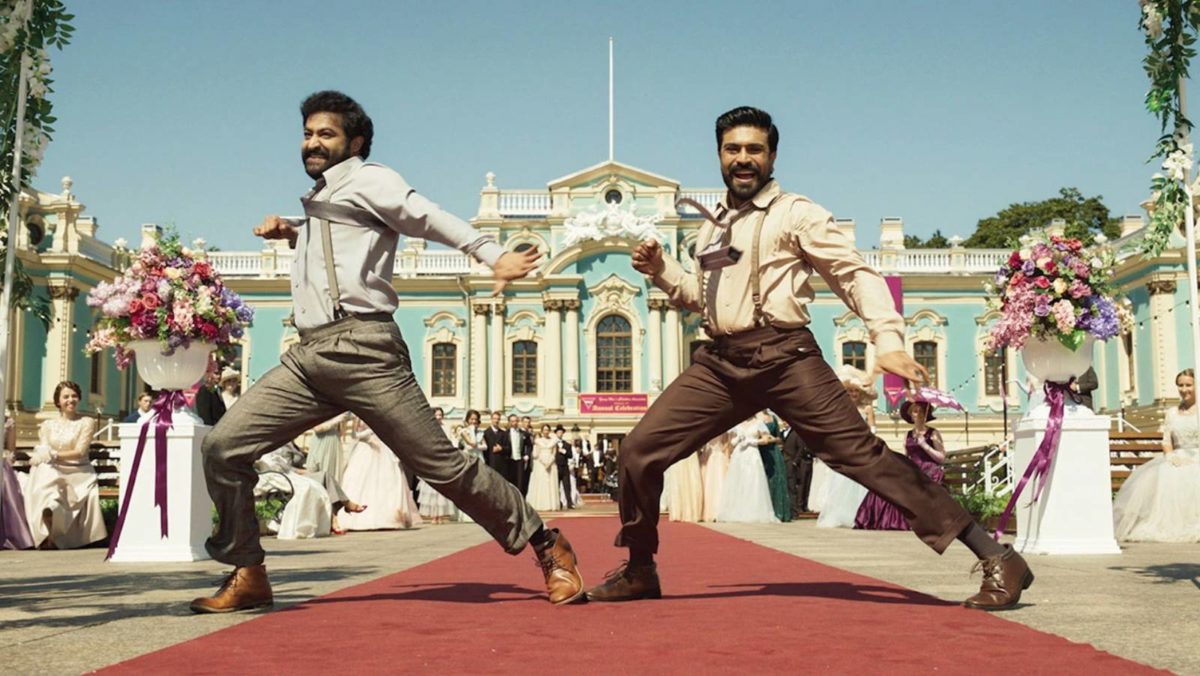
A young boy is trapped under a bridge on a boat, oil spilling from a crashed train that has ignited the river on all sides. Raju (Ram Charan), standing on top of the bridge, has noticed Bheem (N.T. Rama Rao Jr.). Bheem notices him and they begin communicating with only hand symbols to plan rescuing the trapped boy. It’s one of many stellar scenes in RRR that speaks volumes of their quiet communication, the instantaneous rapport that the two actors portray so intensely in every moment of this Telugu-language epic. The breathtakingly charismatic acting style of Rama Rao Jr. and Charan matches the kinetic energy of the film itself, which is no easy feat. To witness Rao Jr. and Charan work with such engrossing intensity to portray two figures on opposite sides of the British colonization of India is one of the most exhilarating triumphs in cinema this year. – Margaret R.
11. Margaret Qualley (Stars at Noon)

Claire Denis has said the key to collaboration is trust. Accordingly she asks her performers to embody the film—its tempo, vibe, personality needing to generate with gesture, expression, sometimes the most intimate parts of their bodies. Taking the rare venture into English-language filmmaking, Denis enlisted Margaret Qualley—a young, fresh talent by this septuagenarian director’s standards—for such task, which the actress met totally: slippery, ever-changing, able to change emotional gears on a shot-to-shot basis. Whenever adherence to Denis Johnson’s novel maybe forbids Stars at Noon from completely hang together, Qualley helps all snap into focus—quite a gift for any one movie to revolve around. – Nick N.
10. Cate Blanchett (TÁR)
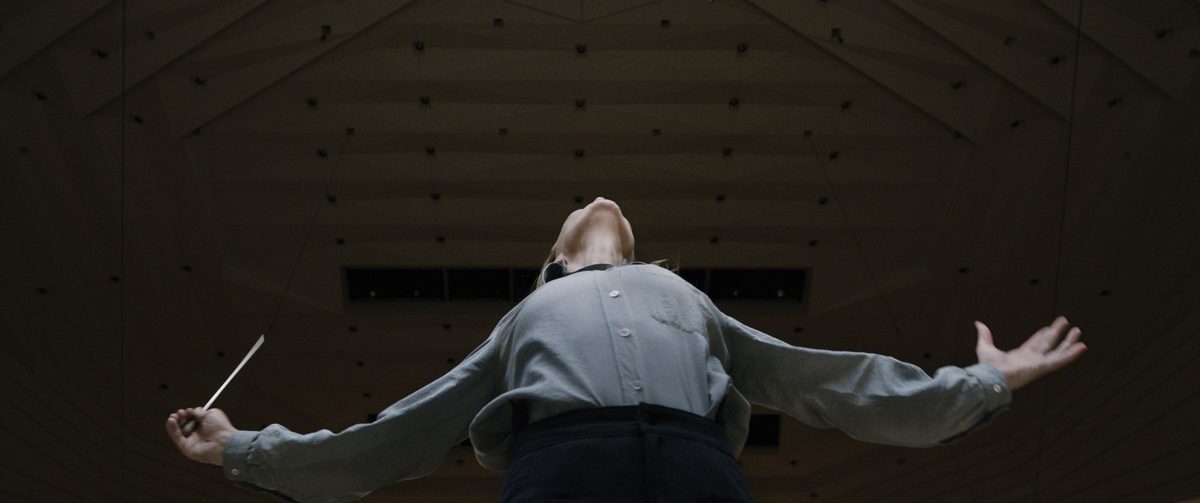
To be in the presence of yet another Cate Blanchett performance that seems to be redefining the art of acting might be one of the greatest thrills in all of cinema. What’s so compelling and magnificent about her work as composer / conductor Lydia Tár is that she seems to be creating the universe around her character out of sheer will. Played by a lesser actor, Tár could have been reduced to an attention-seeking, career-obsessed monster, but Blanchett forces us to revel in her flawed humanity while pondering on philosophical dilemmas like whether an artist’s art matters above everything else. We see Blanchett and Tár at once, she’s a magician allowing us a peek behind the curtain. – Jose S.
9. Jack Lowden (Benediction)
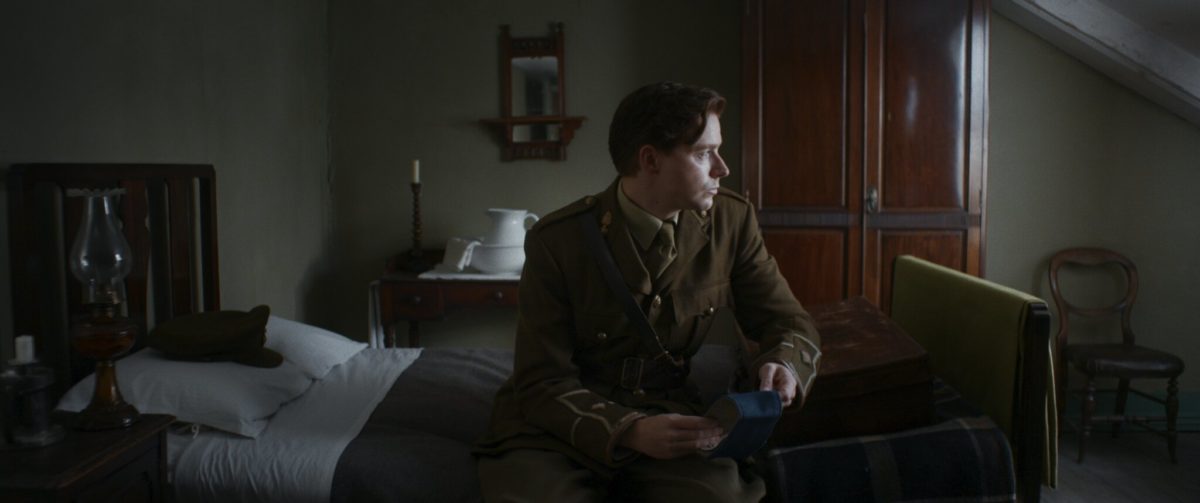
A role played with an aching misery, a loud dignified posture as he stands defiant in the face of the British military, and a face unkept because of the atrocities he witnessed thereafter. Jack Lowden is reeling from frame to frame as poet Siegfried Sassoon, recounting the days of his life as memory slips and faces long blossom after years of reconciliation that he lost through. Through Terrence Davies’ masterful direction and formal dynamism, wherein he balances the nonlinear storyline with projection cut-ins and subtle dissolves, Lowden is given space to amplify all the grief held inside as he existed in quiet agony. All results in one crushing, devastating shot as Lowden sees the end of life right before him. – Erik N.
8. Gracija Filipović (Murina)
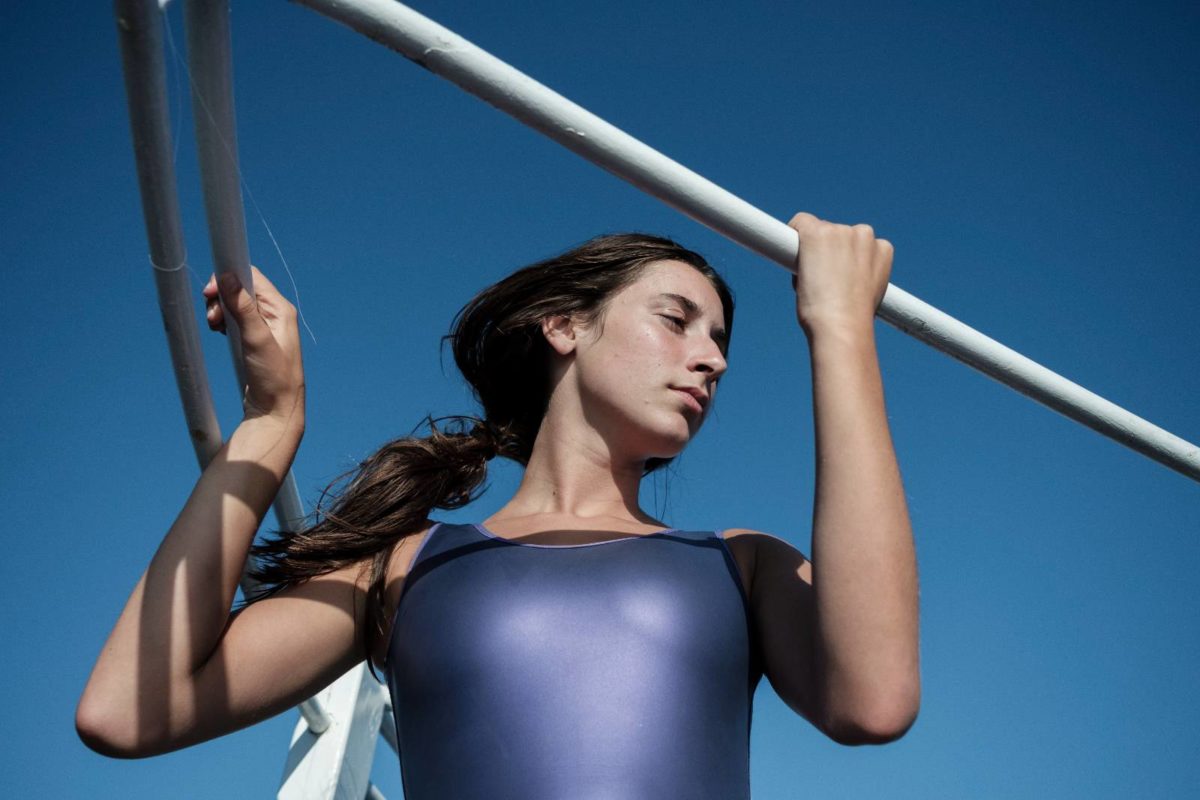
Finding a voice, forming an indentity, Julija feels trapped in a world defined by her father and mother. Tired of being overlooked, she rebels with cautious, hesitant steps: a dress at a party, a drink at dinner, sneaking outside her room at night. It’s a riveting turn by Gracija Filipović in Murina, her feature debut. A diver like her father, Julija finds a freedom underwater that is denied to her on land. Filipović’s exquisite swimming is an expression of her character’s soul. She gives a nuanced, assured performance whether defying her father or competing with her mother, a former model. Her character knows her powers but not their consequences. She’s tempting a fate she doesn’t fully understand. As a performer, Filipović captures Julija’s uncertainty as well as her determination, her confidence, and also her fear. No wonder she won Breakthrough Performer at this year’s Gotham Awards. – Daniel E.
7. Tilda Swinton (The Eternal Daughter)
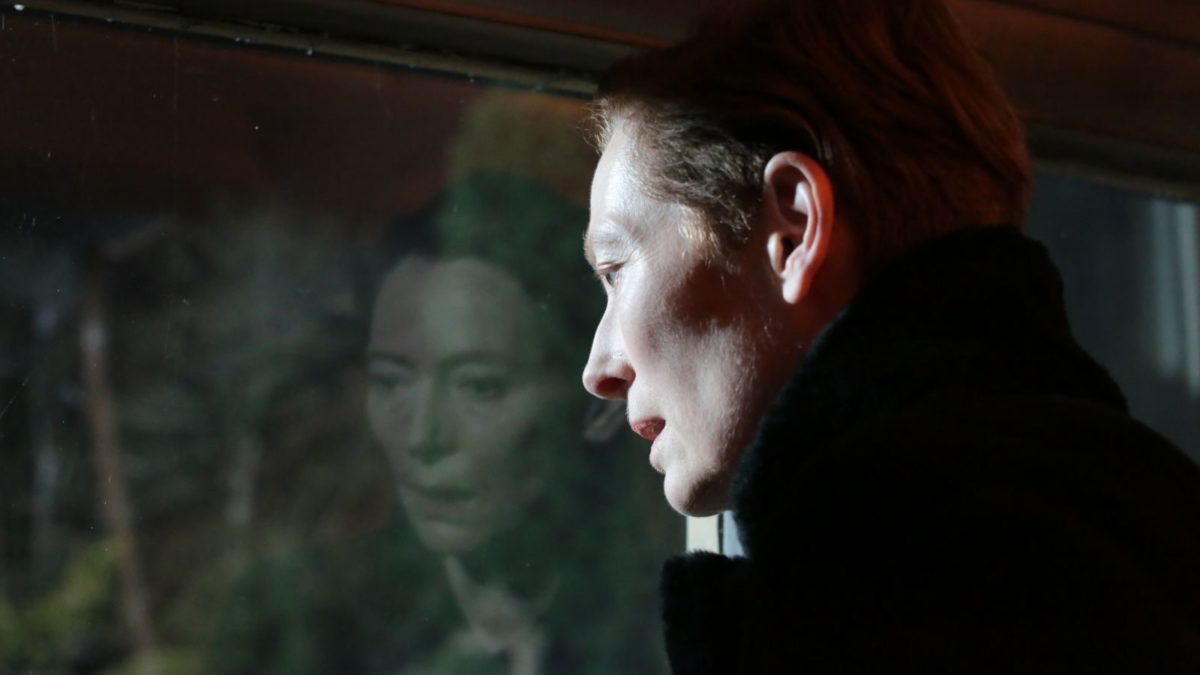
It’s one thing to deliver a year’s best performance, and another thing to deliver two of them, much less in the same film and in the same conversation… with only two people. Among the only actors giving Colin Farrell a run for his money in 2022, Swinton starred in George Miller’s Three Thousand Years of Longing and Guillermo Del Toro’s Pinocchio and now with multiple roles in Joanna Hogg’s The Eternal Daughter. Hogg uses the spooky, cavernous hallways of the film’s isolated Welsh mansion hotel to explore the depths of her relationship with her mother, and it’s no surprise she cast Swinton––her faithful lead since their first short together in 1986––as herself. And seeing how our reckonings with our parents often involve the painful acknowledgement that we’re like them, perhaps Swinton was the obvious choice for mother, too. Over the course of small meals and cakes and endless conversation, the Tildas excavate that ground for anyone who’s willing to go there. On one side of the table she’s young, driven, worried, overbearingly generous, and confused; on the other she’s old, tired, sad, resigned to a haze of memory. It’s some of her best work, which is saying a lot. – Luke H.
6. Juliette Binoche and Vincent Lindon (Both Sides of the Blade)
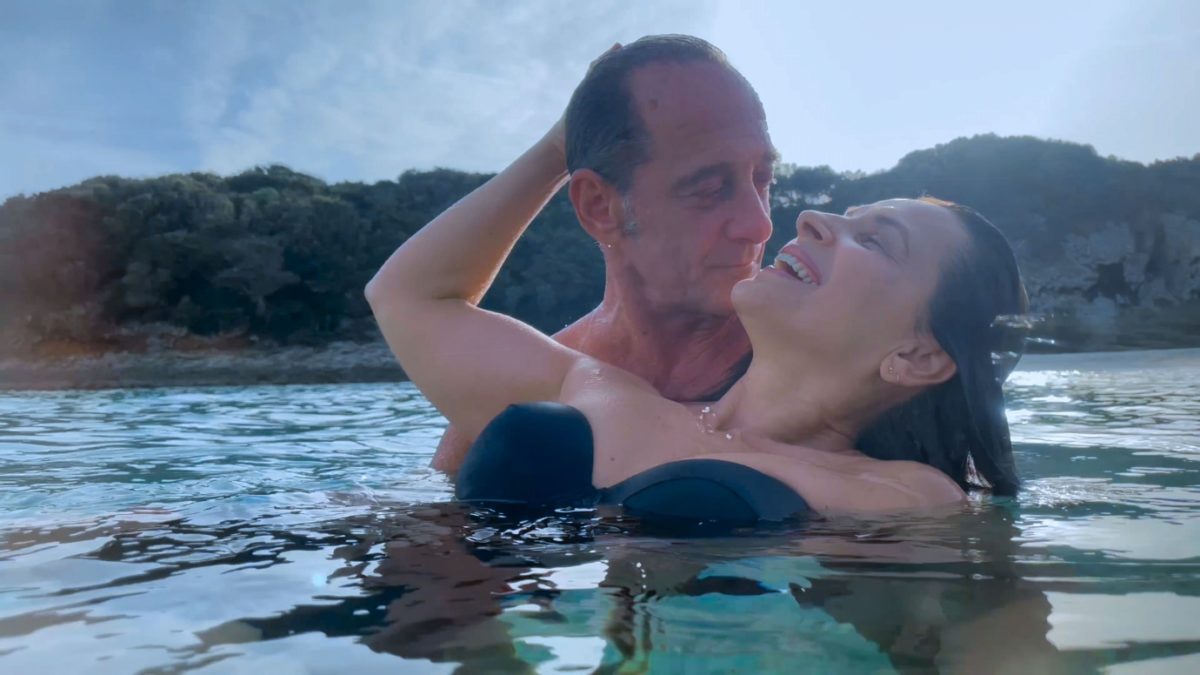
When I interviewed Juliette Binoche about her work with co-star Vincent Lindon on Claire Denis’ Both Sides of the Blade, she told me that her director “really let Vincent and myself deal with each other. And that was not easy… because we are strong personalities and I cannot take shit. And if I feel a macho feeling, a macho way of acting, I’m like a wild animal.” She later described the film as “difficult” and “raw,” and you can feel that all up on the screen as the pair trade barbs while swirling around potential infidelity and their bond falling apart. It’s one of the most toxic, unnervingly natural portraits of a marriage in a film this year, one which builds to a climactic argument where the actors leave every drop of sweat on the table, fully bringing themselves and the audience to a place of emotional exasperation that could only be achieved by two extraordinary actors in their finest moments. – Mitchell B.
5. Tang Wei (Decision to Leave)

Complicating what could’ve been a standard Hitchockian femme fatale, Tang Wei manages to evoke sympathy as Song Seo-rae in Park Chan-wook’s twisty Decision to Leave. Introduced as a suspect in her husband’s murder, Tang walks the line between possible murderess and lovelorn widower who’s so struck by Park Hae-il’s detective that she might do anything for the two to stay close together. Outwardly restrained but nevertheless conveying an emotional depth in her glances, Tang’s performance centers the film’s themes of unrequited yearning and simmering passion that the two characters share. – Christian G.
4. Paul Mescal and Frankie Corio (Aftersun)
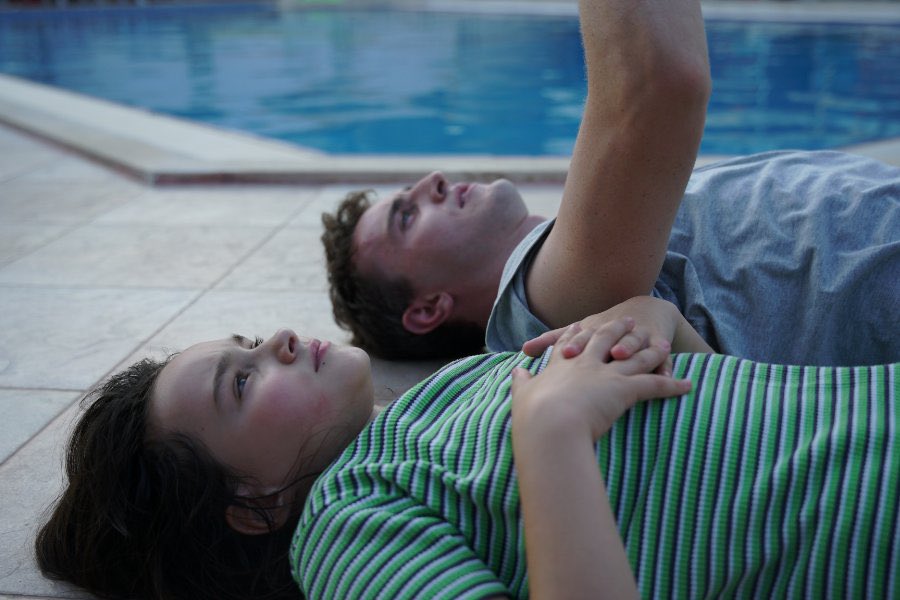
Aftersun is about a father and a daughter, both reckoning with the role that each other has played and will play in their lives. Paul Mescal and Frankie Corio fill up these characters, each bringing levity and understanding to a story that breaks the hearts of most who watch it. Mescal is terrific as a young father unraveling, desperately attempting to keep it together for his daughter. His mental health deteriorates with every minute, and their relationship is tethered by a string. They work in tandem, though, with the actors becoming intertwined. They need each other as they ebb and flow between love and distance. There’s never apathy, though. Corio deserves recognition for showing the nervousness, embarrassment, and love she feels for her father, despite his shortcomings. They’re the two most essential pieces in one of the year’s best films. – Michael F.
3. Park Ji-min (Return to Seoul)
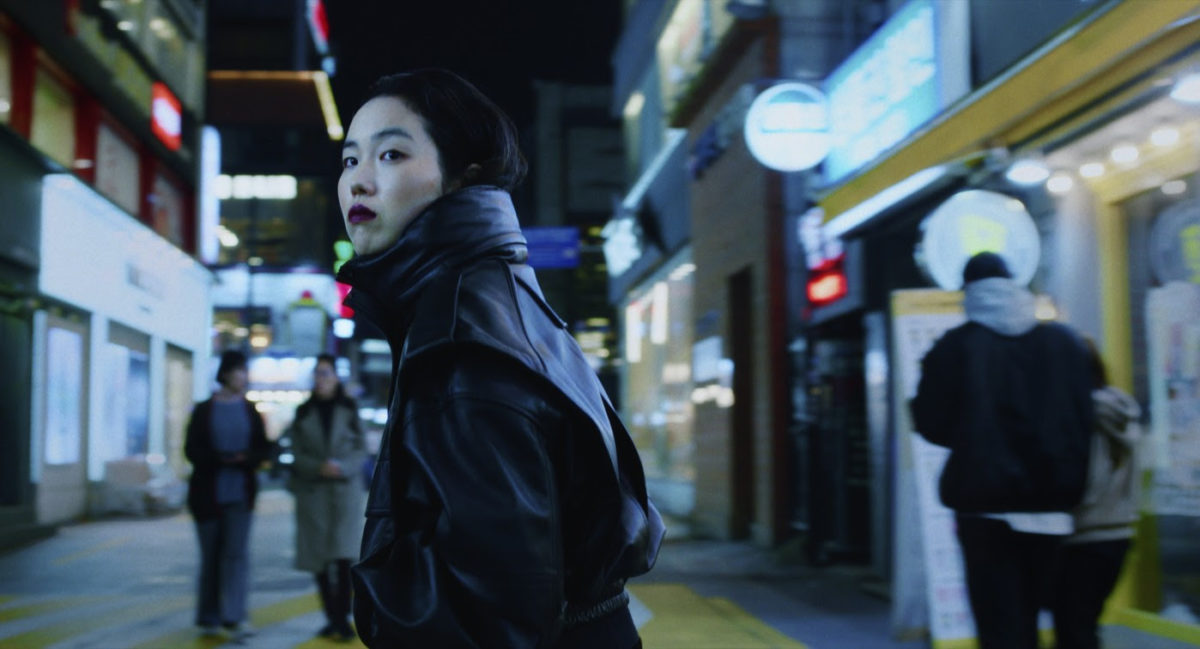
The narrative of Park Ji-min’s lead role in Return to Seoul is almost too neat to be real: how often does an actor’s first-ever performance communicate both an involving audience surrogacy and a nuanced individual presence in any given scene or line? What if that breakout role also came in an exceptionally smart, tough film about adoption, a cinematic subject that historically lends itself to phoniness? There’s nothing false or affected about Park’s work as an adopted Korean woman who grew up in France and now wants to find her birth parents. She isn’t looking to surrender to a happy ending, but understand how the contradictions of adoption led her to this point. – Michael S.
2. Danielle Deadwyler (Till)
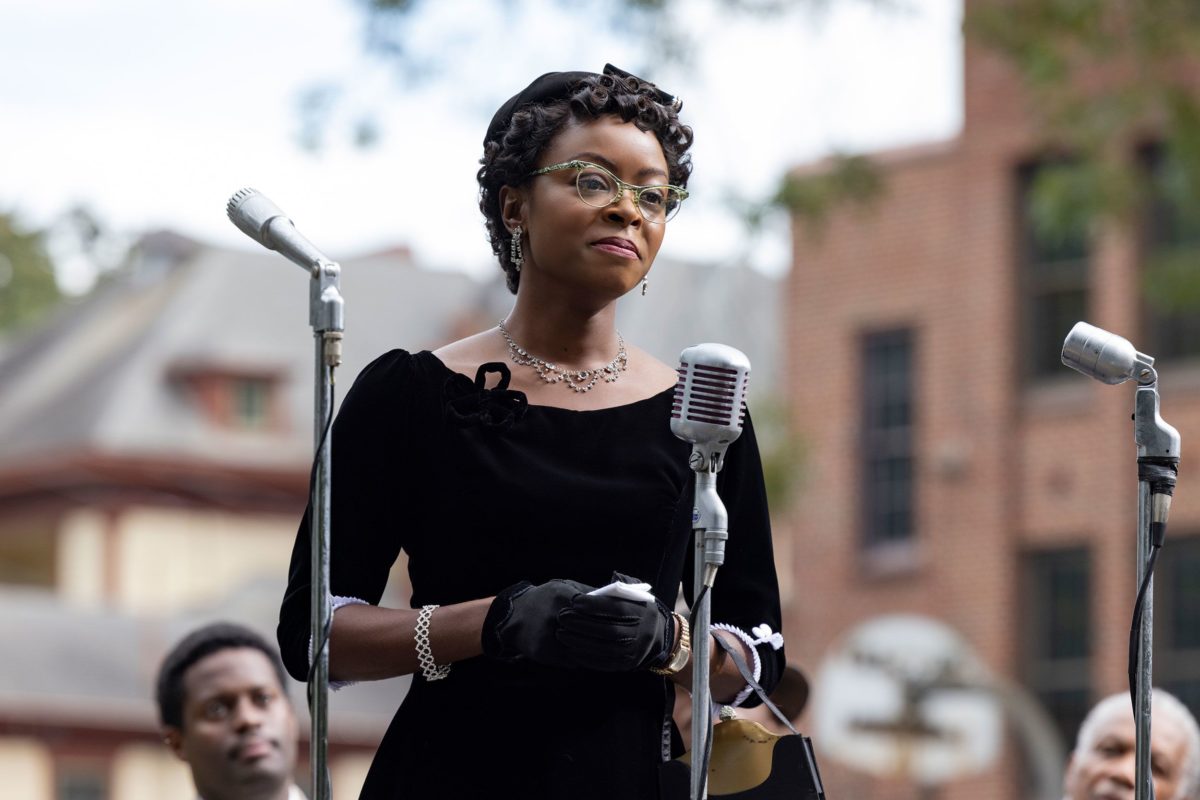
Danielle Deadwyler has the demanding task of playing Mamie Till in the story of her son’s murder and how she responded. Deadwyler is steady, forceful in Chinonye Chukwu’s biopic, offering an extreme level of humanity while pushed to the center of the frame by the director. It’s not an impersonation of someone––it’s an embodiment. She humanizes Mamie and her son, reckoning with the aftermath of a murder, a controlled anger emanating from her voice. Her eyes become the glue of this film, showing a lifetime of memories with her son and a lifetime more of anxiety. Deadwyler is unmovable, unshakable, and as empathetic as imaginable. – Michael F.
1. Léa Seydoux (One Fine Morning, Crimes of the Future, and Deception)
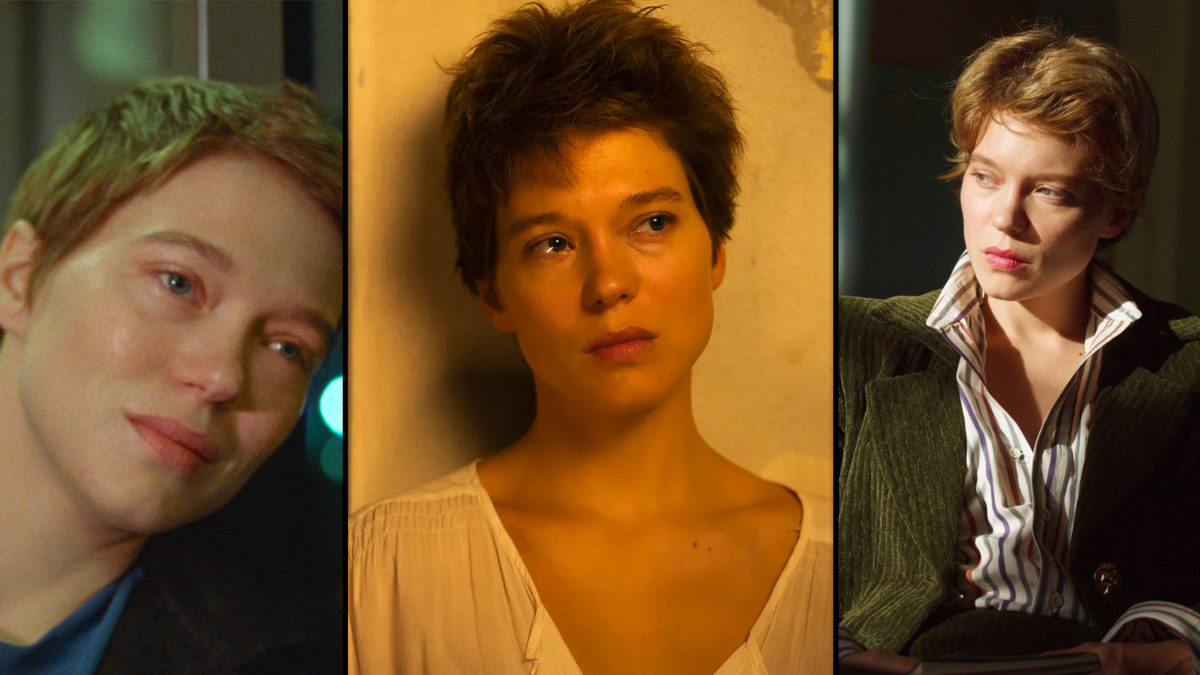
If it could be said an actor’s greatest strength is their capacity to surprise, there comes equal value from a familiarity that allows subversions to sing. In short order it’s become hard to imagine a time before Léa Seydoux—modern movies, at least, could hardly bear that absence. In Deception she at first embodies Philip Roth’s nameless lover so ideally he would’ve had to invent her if she weren’t real, only to shape his characteristic dialogue of anxiety and longing into the potent material so many actors have failed to make heads or tails of. Crimes of the Future winnows people to their basest desires across a setting that has no time left for people at all, and as the loving, ambitious Caprice she reveals this seemingly cold odyssey’s beating heart. One Fine Morning asks she play a normal woman—not an author’s projection, not a scientist’s muse, but someone who, scene by scene, alternates life’s tests and joys—and what’s seemingly the easiest part is perhaps her greatest yet. Each of these roles are fractured by vulnerability—the desire to be known, the desire to create, the desire to be desired. If Seydoux’s three-tiered achievement’s enough on which to rest laurels, we choose to consider it sign of years, decades to come. – Nick N.
Special mention: Hola, Tako, Marietta, Ettore, Rocco and Mela (EO)
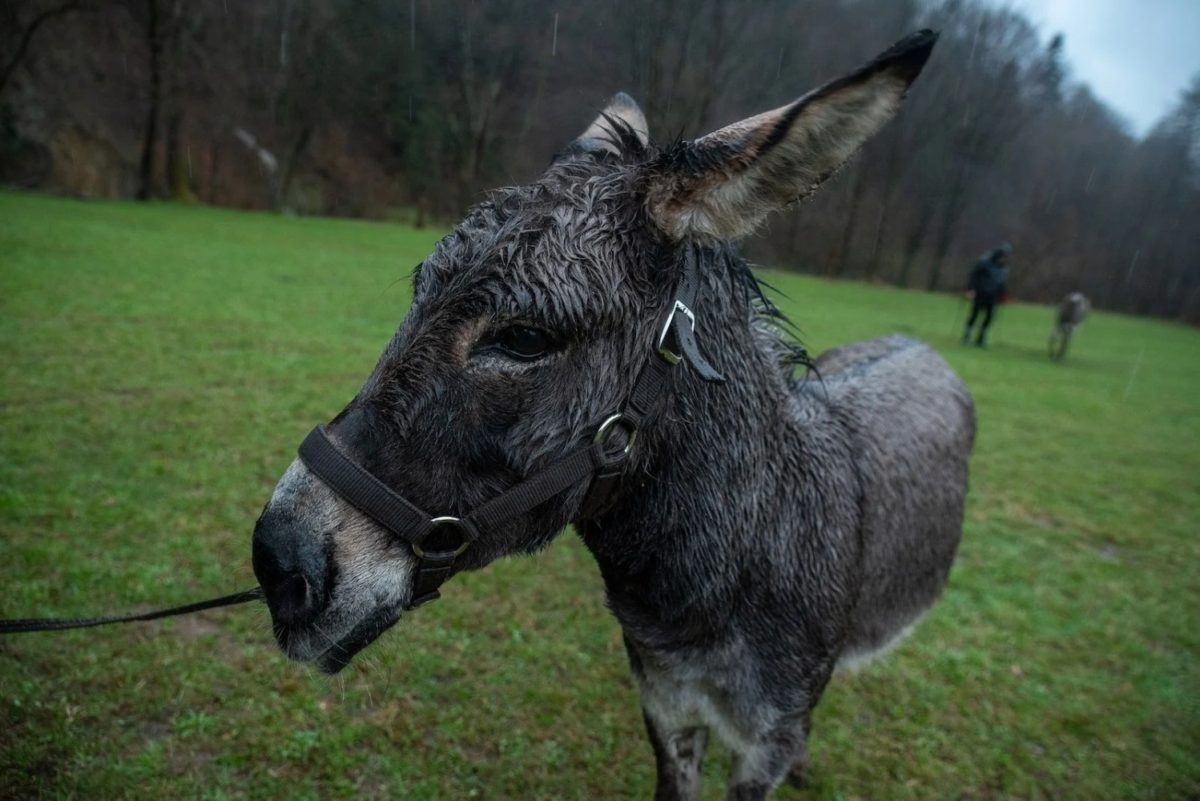
Honorable mentions:
- Anke Bak (Wood and Water)
- Jon Bernthal (Sharp Stick)
- Alia Bhatt (RRR, Brahmastra, Darlings)
- Nathalie Boutefeu (A Couple)
- Brian D’arcy James (The Cathedral)
- Dolly De Leon (Triangle of Sadness)
- Anna Diop (Nanny)
- Adèle Exarchopoulos (Zero Fucks Given)
- Brendan Fraser and Hong Chau (The Whale)
- Laura Galán (Piggy)
- Jake Gyllenhaal (Ambulance)
- Jon Hamm and Annie Mumolo (Confess, Fletch)
- Nina Hoss (TÁR)
- Caleb Landry Jones (Nitram)
- Lee ye-young (In Front of Your Face)
- Justin Long (Barbarian)
- Thandiwe Newton (God’s Country)
- Bill Nighy (Living)
- Jafar Panahi (No Bears)
- Aubrey Plaza (Emily the Criminal)
- Avshalom Pollak (Ahed’s Knee)
- Kalie Reis (Catch the Fair One)
- Taylor Russell (Bones and All)
- Tom Schilling (Fabian – Going to the Dogs)
- Emma Thompson (Good Luck to You, Leo Grande)
- Steven Yeun (Nope)
